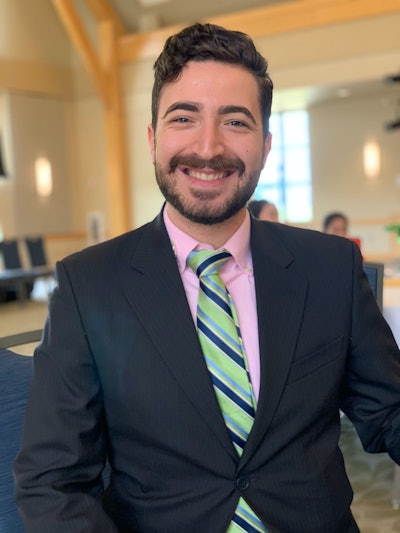Last Spring, I was excited to attend the annual meeting for one of the large professional organizations in my field. It was set to take place in a city I’d never visited, and I don’t have the time or resources as a graduate student to travel, so this was a great opportunity. My mentor and I were invited to present a paper at the conference which meant I had access to funding from my university to go. Having attended another large conference the previous fall, I had a pretty good idea about the expenses related. Thankfully, I didn’t need to get new formal wear, but I did have to figure out how to pay for everything else. Yes, I had a spreadsheet.
And then COVID-19 happened and the conference got cancelled. Bummer.
 Musbah Shaheen
Musbah ShaheenShortly afterwards, the conference I was supposed to present at in the fall went virtual, and there is a distinct possibility that all conferences in the spring will also go virtual. Why would I bother to register for any of these events? I won’t be getting my money’s worth sitting in front of a computer screen for hours.
During previous practitioner and scholar-oriented conferences I had attended, I remember sensing that the main point was to network, meet new people, and revive old connections. I never felt like the culture was one that promotes an exchange of knowledge and learning, especially not for graduate students. As a masters and a doctoral student, I only attended conferences in which I was presenting. Funding sources at my institutions generally supported those who are presenting research at conferences, not just attending, and without funding, I wasn’t going to pay for all the expenses with my graduate student stipend.
As I reflect on this new COVID reality, I realize that we have been doing this whole conference thing wrong. Perhaps it’s just me, but I see my colleagues grappling with the same issues. Is presenting at a conference the sole reason one should go as a graduate student?
You would have thought it was the reverse. Students should be encouraged to attend to learn not just to present. The way we do things now makes it that graduate students who have access to research opportunities are the ones that are more likely to submit original research and to be funded. Those same students are getting the opportunity to network with major scholars in their field, perpetuating this cycle of “networking” that can be very unequitable. Never mind that for some people, these huge gatherings are incredibly stressful. It is an introvert’s nightmare. My last conference experience, I had to lock myself up in the bathroom at one point just to be alone, and took a week-long break from social interactions. Being “always on” took a toll on me and detracted from really benefitting from the great minds around me.
Further, the urge to continuously create a research product is problematic. Perhaps I am just new in academia, but I miss being truly excited about research. Don’t get me wrong, I enjoy what I do and appreciate the opportunities I get, but it feels like I am just a cog in the machine. In a way, it is a good thing that none of us will be traveling for conferences. COVID-19 leveled the playing field to an extent.
I am glad I get to put this aspect of the academy to the test. What do we truly value in our professional associations? Are we really a scholarly community? Do we truly build on each other’s work? I am certainly taking a risk sharing this as a graduate student, but someone has to say it. Is this how we should socialize graduate students? To focus on production and schmoozing during swanky cocktail receptions?
I am struggling with whether I want to sit at my computer and listen to people presenting, which makes me feel guilty – it means that when I did attend conferences, I was there for the optics not the exchange of knowledge or finding my scholarly community. I understand that this is part of a larger problem in the academy, but I hope that we use the coronavirus pandemic as an opportunity to ask ourselves and our colleagues the following questions: what kind of scholarly community are we trying to create? And how can we usher in a new generations of scholars who are excited about making lasting contributions, not just add lines to their CVs and get to visit new places they, otherwise, couldn’t afford?
Musbah Shaheen is a Ph.D. student in higher education and student affairs at The Ohio State University.


















